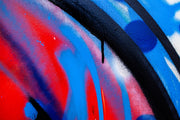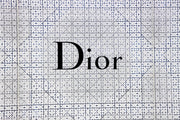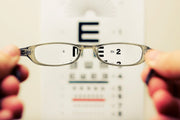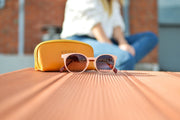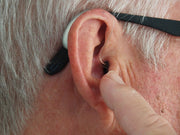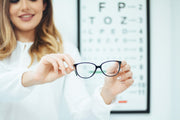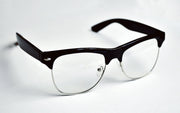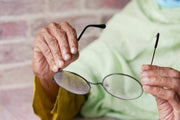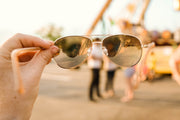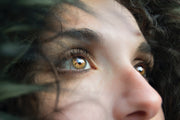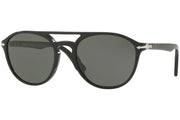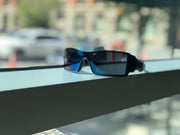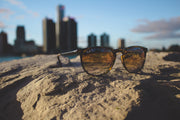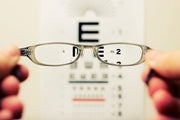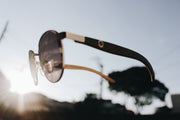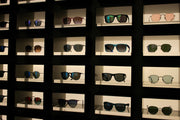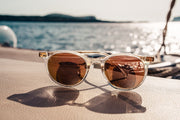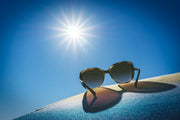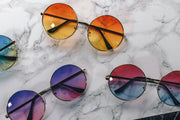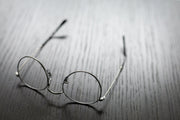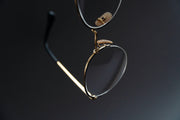No one can reject the clear advantages that anti-reflective coating on glasses may provide, especially eye health. The bright light streaming into your eyes from computer screens, vehicle lights, sunshine, and other sources can cause discomfort with ordinary glasses.
However, not everyone can identify which glass has been covered with an AR coating. As a result, you will find this post useful.
How Can You Tell If Your Glasses Have Anti-reflective Coating?
Some people think that checking the anti-glare layer is a highly specialized operation and difficult to perform. But in fact, you need to take a few simple actions to spot it. You can refer to this article for more simple ways to recognize.
The first thing you should do is move your glasses in different directions when you pick them up. You'll need a light source to shine on your spectacles.
When you rotate the directions, you should look carefully. You will see a slight glare if the glass has an AR coating. The light will primarily be green or pink in hue. And, if the light intensity isn't high enough, you won't be able to see the color of the light source reflected clearly on your glass.
If you don't have an anti-reflective coating on your spectacles, you can recognize them by their light color. No matter where you hold the glasses or what light source you use, the glare will show in the tone of the light reflected on the glass.
It's very reflective, and the reflected color is usually white, causing the most harshness for your eyes. It makes you feel uneasy and prevents you from seeing things.
What Color Is An Anti-reflective Coating?
You can judge the quality and application of your glasses by looking at the color of the reflected light. As stated above, colors appear pixelated on the lens when checking the anti-reflective coating under the light.
Various types of glass with different anti-glare players will be available depending on the demands of users. Here are some examples of colors and their applications.
Blue Anti-reflective Coating
The blue color you see is the color of the remaining 1% of the reflection on your lenses. This is because the anti-reflective coating is unable to drop the leftover light source. The film comprises many layers stacked on top of each other rather than ones.
To reduce glare on the lens surface, each layer will have its light spectrum and interfere with the source light.
The blue AR coating has about six layers placed above another on the lens. That is appropriate for technology users since it helps avoid eye strain caused by high glare levels from digital gadgets. Furthermore, the thin layer doesn’t sacrifice beauty. So it is very useful for daily life purposes such as going on the road, at home and watching movies.
Your glasses will maintain for a very long time because the reflectivity in the glass will ensure for a long time. Most important, the image quality is good while utilizing the anti-reflective blue layer. The strong light intensity does not annoy you so that you can see everything.
Green Anti-reflective Coating
The green anti-reflective coating gives the glass's spectral character with nine treatment layers. The glass thickness will be more than the blue color, resulting in a lower aesthetic. Yet, its qualities deliver enormous benefits in exchange. Outstanding eye protection and crystal clear image quality are what you can expect.
This function will help you limit the harmful effects of harsh light and improve the image's quality. As a result, wearing these glasses for an extended period will reduce the eye fatigue that conventional models can cause.
They offer several benefits for persons who need to drive a lot at night or use computers for most of the day. The optician will supply you with a prescription and tell you to pick green in the reflective coating to safeguard your eyes.
Is Blue Or Green Coating Better?
The quality of eye protection provided by the green type is no better than that provided by blue ones. There are no AR glasses that can block all of the light spectra. That’s why manufacturers have to pick whether blue or green will remain reflections on the lense.
We can perceive less green reflected light than blue even in certain high-end glasses because the color of your glass will change based on what angle people see you.
The dark green tint seems to gain more popularity than the blue one. This coating is less visible, so people will be less likely to notice it.
Is Anti-reflective Coating On Both Sides Of Glasses?
It will be put on both sides of the glass as standard for a basic lens. This way, you can enjoy its effect to the fullest.
Its major impact is to lessen the quantity of light reflected off the glasses' surface. And it can also aid in increasing the contrast of specific images. However, the price of a pair of anti-reflective glasses is fairly high.
So, the seller is limited to only covering one layer in certain retail eyewear businesses. In addition, the anti-reflective coating is affected by a variety of additional elements. For example, the glasses may boast only one anti-reflective coating if the frames are composed of plastic rather than polycarbonate.
Conclusion
Nowadays, the demand for a pair of glasses with an anti-reflective coating is increasing. However, some individuals are still unsure how to tell them apart.
It’s crucial to determine which glasses have an anti-reflective coating and which glasses are not. Differentiating them will give you an edge in having a better vision!
Thank you for joining us in this helpful article, and we will see you soon in the next glasses-related post!

